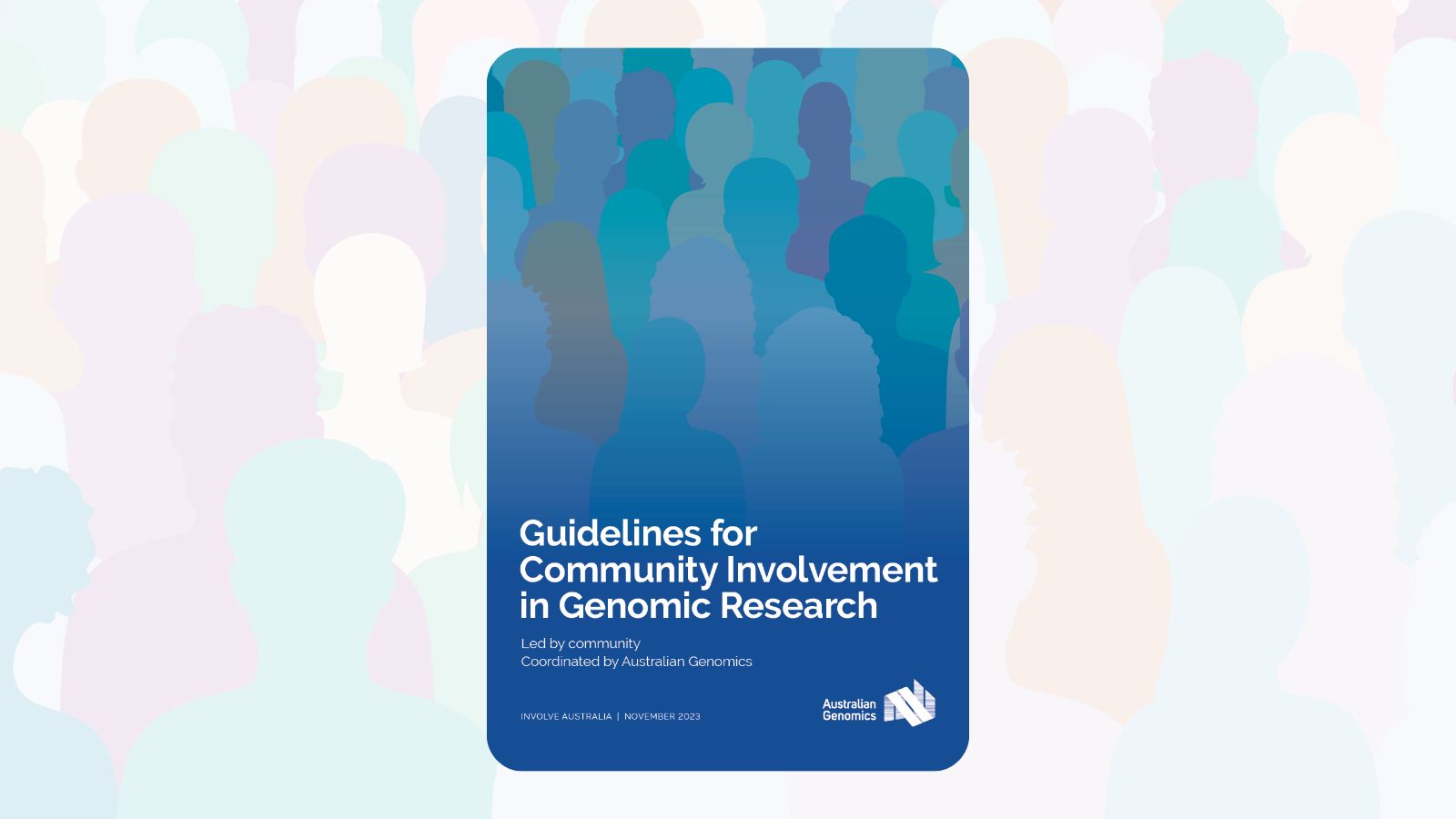
A major study into the meaningful involvement of community members in genomic research has culminated in the publication of a comprehensive set of guidelines for researchers.
The Involve Australia project, coordinated by Australian Genomics, reflects the increasing demand for community involvement in research and a recognition of the benefits of partnering with people who have lived experience of certain health conditions.
The study found that half of Australians report having a chronic health condition, a finding similar to data from the 2021 national census. Yet often these people are not involved in health research, are over-extended across several projects, or feel their involvement is “tokenistic”.
It highlights the complexity of genomic research and the associated ethical, legal and social implications, including access to therapies and treatments – areas that benefit from applying the lens of lived experience in the “equitable and responsible implementation of research”.
“Including community members in research means research priorities and outcomes are more likely to align with community needs, wants and expectations,” the report says. “Projects need to reflect patients’ views so they can be easily adopted and translated into clinical care and practice.”
The guidelines have recommendations across five key domains: building relationships, setting expectations, valuing community members, evaluating and reporting on community involvement processes, and translating research outcomes into real-world impact.
They include background information and context, practical strategies, and useful resources sourced through a review of existing guidelines.
Next year the project will release recommendations to research institutes and funders on ways they can support community involvement.
Read more and download the Guidelines for Community Involvement in Genomic Research.

